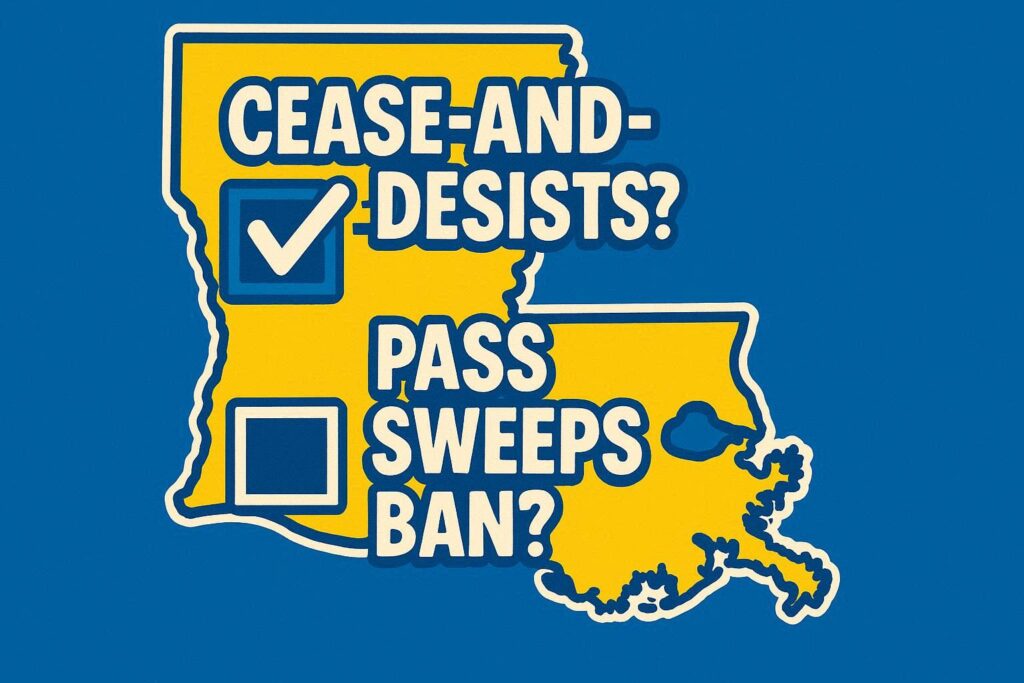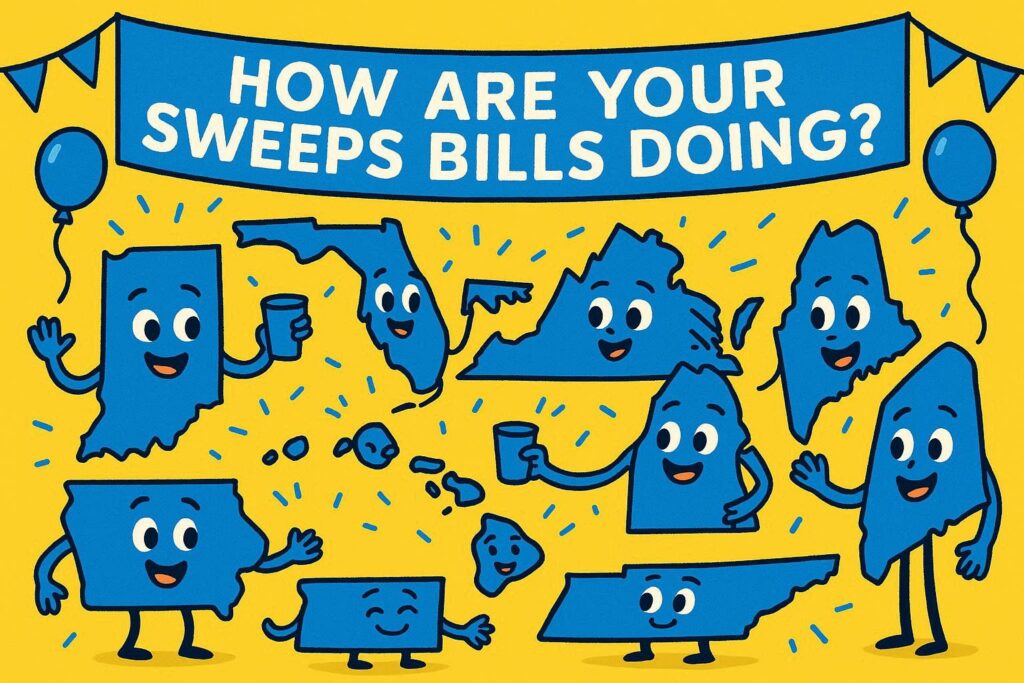Executives from one of the gambling industry’s staunchest opponents of sweepstakes casinos held their second-quarter 2025 investors call this week.
And, yes, they most certainly addressed the sweepstakes-sized elephant in the room.
While Light & Wonder, a developer and content provider in the iGaming, land-based gambling, and social gaming sectors, reported an overall positive quarter with $809 in revenue and a 16% increase in net income, it did also report “modest declines” in their social gaming arm, SciPlay. More specifically, Q2 social gaming revenue was $200 million, down from $204 million in Q1.
Matthew Wilson, President and CEO, told investors Wednesday a significant reason for that revenue decline boils down to “top-line erosion and increased marketing costs” that stem from sweeps casino competition, causing “a direct top-line impact from the growth of sweepstakes gaming in states that they are currently operating in.”
“In states that have taken action to eliminate sweeps, we have seen a noteworthy uplift in our performance,” Wilson said. “As this issue is further addressed … we expect to benefit from a more favorable market environment in states that ban sweepstakes gaming.”
READ MORE: BetMGM CEO Adam Greenblatt: ‘We Believe Sweeps Should Be Illegal iGaming’
How sweeps operators and SciPlay apps compete
SciPlay offers a handful of social casino gaming apps, including Jackpot Party Casino, Gold Fish Casino, Quick Hit Slots, and 88 Fortunes.
These apps are direct competitors to the sweepstakes operators coming under fire in 2025, as the dual-currency Gold Coins/Sweeps Coins model for sweeps casinos faces intense scrutiny. This sweeps model, where players can redeem Sweeps Coins for real cash, is certainly a tangential competitor of apps like Jackpot Party and 88 Fortunes. But then most of these sweeps operators also offer purely social gaming options, too, using only Gold Coins — and this is direct competition for SciPlay.
So, logically, anything bad for the sweeps industry will be good for the social gaming branch of Light & Wonder, which has participated in public opposition and lobbying work, largely from Howard Glaser, the company’s head of governmental affairs and legislative counsel.
Glaser, in fact, is probably one of the most vocal opponents of sweeps on LinkedIn, alongside fellow Light & Wonder executive F. Steven Dimasi, the company’s senior vice president of global government affairs and business development; U.S. gaming attorney Daniel Wallach; and Victor Rocha, conference chair of the National Indian Gaming Association.
“I think at this point, it’s undeniable to say that sweeps are having an impact on the social casino segment. It’s definitely a substitute,” Wilson said. “I mean in our mind, it’s unregulated, untaxed iGaming. There’s no denying that. And when we look at the data specifically around the markets where sweepstakes have been banned, you see a significant uptick in terms of social casino. So from our vantage point, there’s just no denying it’s had an impact on the social casino markets where sweepstakes is active.
“But we like to focus on the things in our control at Light & Wonder. That’s outside of our control, and we’ll watch on as industry pundits like the rest of us.”
Yes, companies profit off free-to-play social casino games
Although social casino games can be completely free to play, operators — both Light & Wonder/SciPlay and sweepstakes operators like VGW — ideally want players to make purchases and become paying customers. These companies are businesses, after all.
Like social versions of popular sweeps brands such as Chumba Casino, SciPlay apps like 88 Fortunes allow players to purchase extra digital currency to be used in the games. Players can also purchase other perks, such as mystery prices or tournament entries.
The goal for all these social companies: Turn as many free players into paid players as possible.
In fact, Oliver Chow, Light & Wonder’s CFO, alluded to the company’s “payer conversion ratio” during the question-and-answer portion of Wednesday’s call — which was 9.8% in Q2.
“Of the players that were converted to payers,” Chow continued, “the average monthly revenue per paying user was up 10%, approaching $129.”
Despite the increasing competition from sweepstakes operators and the slight quarter-over-quarter downturn from social gaming products, Light & Wonder’s SciPlay apps lead the industry with a 12% market share, Wilson said.
Perhaps more importantly: Chow said that they were able to increase their “revenue per daily active user” by 4% up to $1.08. So, on average, Light & Wonder can bank on making a little more than a dollar per day for each person who plays SciPlay apps.
Plus, the average monthly revenue per paying players — or “payers” — grew 10%, up to nearly $129.
“We continue to see record revenues of Quick Hit Slots and 88 Fortunes in the quarter with double-digit growth compared to the prior year,” Wilson said. “Revenue was $200 million in the quarter as we continue to outpace the broader social casino industry.”
Hey, who’s he talking about?
When Wilson mentioned the “states that have taken action to eliminate sweeps,” he was referring to:
- Connecticut, Montana, New York, and Montana, which passed bills banning online sweepstakes casinos this year. (Nevada also passed a bill strengthening enforcement against sweeps operators this year.)
- Louisiana, Mississippi, Maryland, and Arizona, which have issued cease-and-desist letters to sweeps operators this year.
California and Ohio also currently have active bills that would ban sweeps casinos.
Ohio’s bill, House Bill 298, hasn’t seen any activity since late May and it would also legalize real-money online casinos — which faces significant resistance in the state, including from Gov. Mike DeWine.
The bill in California, meanwhile, Assembly Bill 831, has full-throttle backing from the state’s most powerful gaming tribes and has received the fast-track treatment so far. We’ll get a sense of whether that fast track continues when AB831 receives its third and final Senate hearing in front of the Appropriations Committee on Aug. 18.









